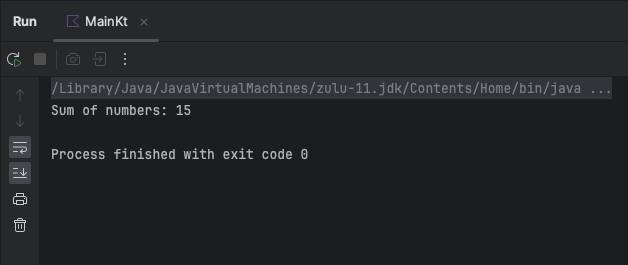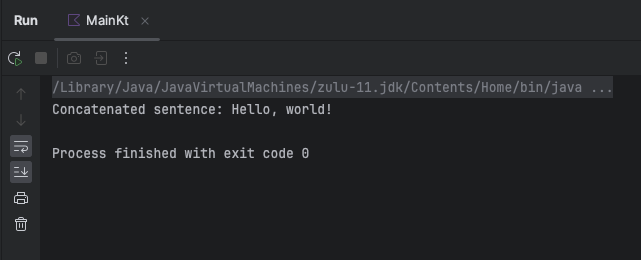Kotlin List reduce()
The List reduce() function in Kotlin is used to apply an operation sequentially to all elements in a list and accumulate the result. It starts with an initial value and combines elements from left to right using the specified operation.
Syntax
The reduce() function takes two parameters:
fun <T, R> Iterable<T>.reduce(
operation: (acc: S, T) -> S
): Rwhere:
| Parameter | Description |
|---|---|
| operation | A function that takes an accumulator of type S and an element of type T, and returns a new accumulator of type S. |
Return Value
The reduce() function returns the final accumulated value after applying the operation to all elements in the list.
Example 1: Summing Numbers
This example demonstrates how to use reduce() to calculate the sum of numbers in a list.
In this example,
- Create a list of numbers, numbers.
- Use
reduce()to sum all numbers in the list. - The
reduce()function adds each number to the accumulator, starting with an initial value of 0.
Kotlin Program
fun main() {
val numbers = listOf(1, 2, 3, 4, 5)
val sum = numbers.reduce { acc, num -> acc + num }
println("Sum of numbers: $sum")
}Output

Example 2: Concatenating Strings
In this example, we use reduce() to concatenate strings in a list.
In this example,
- Create a list of strings, words.
- Use
reduce()to concatenate all strings in the list. - The
reduce()function concatenates each string to the accumulator, starting with an initial value of an empty string.
Kotlin Program
fun main() {
val words = listOf("Hello", ", ", "world", "!")
val sentence = words.reduce { acc, word -> acc + word }
println("Concatenated sentence: $sentence")
}Output

Summary
The reduce() function in Kotlin is useful for performing operations that involve accumulating values, such as summing numbers or concatenating strings. It applies the specified operation sequentially to all elements in the list and accumulates based on the accumulation expression.